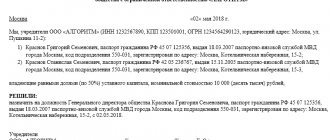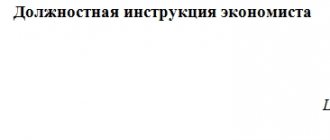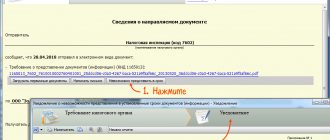Almost every company sooner or later undergoes an inspection by the State Labor Inspectorate (GIT). This structure monitors compliance with workers' rights. Based on the results of the inspection, if violations are detected, an order is issued. It is a document that sets out the requirements for correcting the offense. After a certain period of time, a re-inspection is carried out. During this process, it is determined whether the offense has been corrected. However, the manager may not agree with the prescription. In this case, it can be appealed.
Question: Is it legal to challenge the order of the labor inspectorate according to the norms of the CAS RF? View answer
How did the appeal happen in the past?
Previously, the judicial authorities did not have a consensus on appealing the order. It took place on the basis of the Code of Civil Procedure of the Russian Federation. At the same time, the rules of procedure in cases concerning public legal relations were taken into account. However, this became irrelevant after September 15, 2015. The CAS came into force on this date. After this, appeals began to be carried out on the basis of this code.
But disagreements remained. In particular, some courts believed that the appeal should be carried out on the basis of the CAS, while others believed that the procedure was carried out on the basis of the Code of Civil Procedure of the Russian Federation. Throughout 2015-2016, the courts could not come to a common position.
What is the administrative responsibility for failure to comply with the instructions of state labor inspectors ?
Article 361 of the Labor Code of the Russian Federation. Appealing decisions of state labor inspectors (current version)
1. Decisions of state labor inspectors can be appealed administratively and (or) judicially.
In the first case, the complaint is submitted to a superior person or body. The commented article clarifies that the decisions of state labor inspectors can be appealed to the relevant head of subordination, the chief state labor inspector of the Russian Federation.
According to Part 12 of Art. 16 of the Law on the Protection of the Rights of Legal Entities and Entrepreneurs, a legal entity, individual entrepreneur, whose inspection was carried out, in case of disagreement with the facts, conclusions, proposals set out in the inspection report, or with the issued order to eliminate the identified violations within 15 days from the date of receipt of the act inspection has the right to submit to the relevant state control (supervision) body in writing objections to the inspection report and (or) the issued order to eliminate the identified violations in general or its individual provisions. In this case, a legal entity or individual entrepreneur has the right to attach to such objections documents confirming the validity of such objections, or their certified copies, or, within the agreed period, transfer them to the state control (supervision) body.
2. An employer - an individual, manager, or other officials of an organization subject to control by the state labor inspectorate, has the right to file a complaint with the judicial authorities if they do not agree with the decision of the chief state labor inspector based on the results of the inspection.
The judicial procedure for appealing the mentioned decisions is provided as an alternative. Thus, the courts consider complaints against decisions of state labor inspectors, the chief state labor inspector of the Russian Federation on bringing managers and other officials of the organization, employers - individuals to administrative responsibility. Complaints are considered according to the rules provided for by the Code of Civil Procedure of the Russian Federation.
3. State labor inspectors are required to prove the validity of their actions when they are appealed by employers in the manner established by the legislation of the Russian Federation (Article 18 of the Law on the Protection of the Rights of Legal Entities and Entrepreneurs).
Comment source:
Rep. ed. Yu.P. Orlovsky “COMMENTARY ON THE LABOR CODE OF THE RUSSIAN FEDERATION”, 6th edition ACTUALIZATION
ORLOVSKY Y.P., CHIKANOVA L.A., NURTDINOVA A.F., KORSHUNOVA T.YU., SEREGINA L.V., GAVRILINA A.K., BOCHARNIKOVA M.A., VINOGRADOVA Z.D., 2014
The situation with the appeal now
The situation was resolved by the Supreme Court. In particular, determination No. 75-KG16-14 dated December 19, 2021 was issued. It contains these provisions:
- The function of the labor inspectorate is to detect violations in the field of labor. However, inspectors do not have the right to resolve labor disputes.
- The inspection order is an administrative document. Therefore, its appeal is carried out on the basis of the CAS. It does not matter whether the regulation concerns the rights of employees or not.
How to extend an order to eliminate violations of labor laws ?
That is, now the position of the courts is completely defined. The legality of the inspector's decision is established administratively. What does this give to the employer? The administrative procedure is more beneficial for the company, as it simplifies the process of proving its position. In particular, in this case the employer does not need to prove the illegality of the decision. It is the labor inspectorate that must prove that the order was lawful and in compliance with all laws.
Answer:
- An order to eliminate violations of mandatory requirements is not an administrative penalty. Accordingly, the prohibition cannot be applied to the situation described in the question, according to which no one can be held administratively liable twice for the same administrative offense. If an inspection reveals violations of mandatory labor requirements, the state labor inspector is obliged to issue an order to the employer to eliminate these violations. In addition, if there is sufficient data indicating the presence of an administrative offense event, he is obliged to draw up a protocol on the administrative offense.
- In cases where the case of an administrative offense could not be considered within the time period established for the inspection, the case of an administrative offense is initiated and considered upon completion of the inspection and signing of the inspection report.
- The current Code of Administrative Offenses of the Russian Federation does not allow the possibility of imposing an administrative penalty not provided for in the sanction of the applicable article of the Special Part of the Code of Administrative Offenses of the Russian Federation. Accordingly, it is not allowed to replace the administrative fine provided for by the sanction of Article 5.27 of the Code of Administrative Offenses of the Russian Federation with a warning.
- Compliance with the inspector’s lawful order within the prescribed period will allow not to mitigate the punishment imposed based on the results of the scheduled inspection, but to avoid bringing to administrative responsibility under Article 19.5 (Part 23) of the Code of Administrative Offenses of the Russian Federation.
Appeal options
The possibility of appeal is stipulated in Article 361 of the Labor Code of the Russian Federation. The same article states that the procedure can be carried out in two ways:
- Appeal to a superior person. In particular, the employer needs to file a complaint with the head of the State Tax Inspectorate carrying out the inspection. If this does not help, you can send your complaints to the country's chief labor inspector.
- Through the court. It is necessary to file a claim in court after paying a fee.
The employer has the right to choose the method of appeal independently. However, if the inspector makes a decision to suspend the activities of the entity, then it can only be challenged in court.
Appealing a labor inspectorate order
If violations of labor legislation are detected during an inspection, the inspector issues an order to the employer to eliminate these violations, indicating the deadline for elimination (clause 1, part 1, article 17 of Law No. 294-FZ, paragraph six of part one, article 357 of the Labor Code of the Russian Federation).
Unlike an inspection report, an order is an administrative document obliging the employer to take specific measures and giving rise to legal consequences based on the results of the inspection, which is subject to appeal.
An order issued by a labor inspector can be appealed by the employer to the head of the state labor inspectorate or to court (Article 361 of the Labor Code of the Russian Federation, Part 12 of Article 16 of Law No. 294-FZ, Clause 113 of Regulation No. 354n).
With regard to challenging the orders of state labor inspectors, the legislation does not establish requirements for mandatory compliance with the pre-trial procedure for resolving the dispute, so a complaint against the order can be immediately filed by the employer in court.
After the CAS of the Russian Federation came into force on September 15, 2015, cases of appealing the orders of the labor inspectorate were considered by the courts in accordance with Chapter 22 of the CAS of the Russian Federation.
However, subsequently the letter of the Supreme Court of the Russian Federation No. 7-ВС-7105/15 dated 05.11.2015 was brought to the attention of the courts, which provides clarifications on the categories of cases that raise questions regarding the determination of the type of legal proceedings (claim or administrative). The letter contains categories of civil cases considered by courts of general jurisdiction in the procedure of civil proceedings, among which are cases challenging the orders of the State Labor Inspectorate.
Therefore, at present, the orders of the labor inspectorate are being challenged in a court of general jurisdiction in the manner of civil litigation according to the rules of subsection II of section II of the Code of Civil Procedure of the Russian Federation.
An application to challenge an employer’s order should be submitted to the district court at the location (location of actual location) of the relevant state labor inspectorate (Article 28 of the Code of Civil Procedure of the Russian Federation).
A civil claim in court to declare invalid (illegal) an order issued by the labor inspectorate is filed within 10 days from the date of its receipt (part two of Article 357 of the Labor Code of the Russian Federation). This appeal period is special in relation to the general three-year limitation period established by paragraph 1 of Art. 196 of the Civil Code of the Russian Federation, and is subject to application by the courts when considering cases challenging the orders of state labor inspectors. If the employer misses the specified period without good reason, the court may decide to reject the claim without examining other factual circumstances in the case (Part 6 of Article 152 of the Code of Civil Procedure of the Russian Federation).
An employer filing a civil lawsuit in court does not mean that the order issued to him by the labor inspectorate does not need to be followed. The judge has the right to suspend the effect of the contested order on his own initiative, but is not obligated to do so. To suspend the validity of an order, the employer should apply to the court with a corresponding application at any stage of the proceedings, before the decision enters into legal force.
If the employer's civil claim is satisfied, the court makes a decision to invalidate (illegal) the labor inspectorate's order in whole or in part (Part 5 of Article 198 of the Code of Civil Procedure of the Russian Federation).
Also, the order of the state labor inspector can be appealed by the employer to the relevant manager according to his subordination in the manner established by Part 12 of Art. 16 of Law No. 294-FZ. To do this, it is necessary, within 15 days from the date of receipt, to submit written objections to the head of the state labor inspectorate regarding the issued order to eliminate the identified violations in general or its individual provisions. In this case, the employer has the right to attach documents (certified copies thereof) to the objections confirming their validity; or send them in the form of electronic documents signed with an enhanced qualified electronic signature of the person being verified. Objections are subject to consideration by the head of the state labor inspectorate (his deputy) within 10 working days, based on the results of which a written decision is made and brought to the attention of the employer within 3 days after its issuance (clause 63 of Regulation No. 354n).
This is interesting: Will there be a one-time payment of 5,000 rubles to pensioners in 2021?
However, in practice, this method of appeal is ineffective, since a superior manager extremely rarely satisfies the employer’s complaint about the issued order. In addition, unlike challenging an order in court, the legislation does not provide for the possibility of suspending the effect of an order when filing objections in an administrative manner. Also, the fact of filing objections to the relevant subordinate manager regarding the issued order does not interrupt or suspend the ten-day period for going to court.
Therefore, if the employer does not agree with the order received, it is better to appeal it immediately in court.
Deadlines
The deadlines for appealing the orders of the State Tax Inspectorate are not defined by law. This means that the standard procedure will be relevant. You can file a complaint with the court within 10 days from the date the order is issued. If you need to challenge a document about an administrative violation, the procedure is also carried out within 10 days from the date of receipt of the document. The corresponding period is stipulated in Article 30.3 of the Code of Administrative Offenses of the Russian Federation.
If the employer forwards the complaint to a superior inspector, it must be considered within 30 days from the date of its filing. If after this period no response has been sent, a claim must be filed with the court within 3 months. In addition, if the superior inspector refuses to appeal, the employer can also refer to the judicial authority.
How to appeal a labor inspectorate order: step-by-step instructions
An employer who, based on the results of an inspection by the State Labor Inspectorate (SLI), received an order to eliminate the identified violations, has the right to appeal this order in the prescribed manner.
In this article we will look at how to appeal a labor inspector’s order, where to file a complaint against the actions of the State Labor Inspectorate, and what is the deadline for appealing a labor inspector’s order. In accordance with the norms of current legislative acts, the State Labor Inspectorate regularly inspects employers (both legal entities and individual entrepreneurs) to ensure their compliance with the standards labor law. The State Labor Inspectorate carries out inspections both regularly, in accordance with the approved schedule, and unscheduled, based on complaints received from employees, as well as due to the expiration of previously issued orders. If, as a result of the inspection, the labor inspector establishes that that the employer conducts activities in violation of labor legislation, then upon completion of the inspection, the State Labor Inspectorate, together with the inspection report, issues an order to the employer.
This is interesting: Social Payment to a Young Family for the Birth of a Child up to 30 Years of Age
Judicial and administrative procedure for appealing decisions, actions (inaction) of the State Tax Inspectorate and its officials
Marshala Krylova, 20
Judicial procedure for appealing decisions, actions (inaction) of the State Tax Inspectorate and its officials A citizen, organization has the right to challenge in court a decision, action (inaction) of a government body, local government body, official, state or municipal employee if they believe that their rights have been violated and freedom. A citizen or organization has the right to appeal directly to the court or to a higher authority in the order of subordination, a local government body, an official, a state or municipal employee (Article 254 of the Code of Civil Procedure of the Russian Federation).
The application is submitted to the court with jurisdiction established by Articles 24 - 27 of the Code of Civil Procedure of the Russian Federation.
Drawing up a complaint
When filing a complaint, you must provide the following information:
- Name (full name) of the structure or person to whom the document is sent.
- Address and details of the employer (full name, company name).
- Details of the order that is being disputed.
- Employer's argument. In particular, you must provide evidence that the order was issued illegally.
- Formulation of the request. For example, the request may be to cancel the order or declare the actions of the State Tax Inspectorate illegal.
The complaint must be made in two copies. The first is sent to the office, the second remains with the employer. On the second copy, the receiving party puts down the incoming number.
IMPORTANT! The document can be sent in various ways. You can give it in person or send it by mail. In the second case, a registered letter with delivery notification is used. You can also use the content inventory service.
Argumentation for appeal
The success of appealing an order depends on correctly constructed argumentation. The employer must provide specific reasons for the challenge. They may be as follows:
- The offenses that the inspector identified do not actually exist.
- As part of the GIT inspection, the accompanying documents were drawn up incorrectly or the procedure for control checks was ignored.
The second line of argument is more promising. It is relevant even if there is actually an offense.
Inspection of State Tax Inspectorate involves drawing up documents by inspectors. For example, if an administrative offense is discovered, you need to draw up a corresponding protocol. The procedure requires adherence to a certain order. For example, the employer is explained his rights and obligations. He is given the right to submit explanations regarding the violations found. The employer must be familiar with the protocol against signature. If this order was ignored by the inspector, the violator can take advantage of this and draw up an appropriate argument.
The GIT prescription can be canceled on these grounds:
- The employer was not notified about the preparation of the protocol.
- The person was not given the right to explanation.
- There is no order from the State Tax Inspectorate to conduct an inspection, which indicates the timing of the event and its goals.
- The order to conduct an inspection does not contain a registration number, date of publication, or signature of a representative of the State Tax Inspectorate.
- The information contained in the service ID does not correspond to the information specified in the order.
That is, the order can be appealed based on any significant shortcomings on the part of the inspector.
Practice
As already mentioned, the employer can appeal the order through a higher-ranking inspector or through the court. In practice, they usually go directly to court. What is this connected with? The fact is that when you appeal to a higher authority, the time allotted for solving the problem through the court does not stop flowing.
Let's look at an example. The employer sends an application for appeal to a higher-ranking inspector. They must respond to him within 30 days. For example, a person received a refusal after 20 days. In this case, the period for going to court, equal to 10 days, has already expired.
However, the employer can go to court to challenge the decision of a superior inspector. He will need to pay a fee based on paragraph 1 of Article 333.19 of the Tax Code of the Russian Federation. The claim is filed in court at the actual address of the State Tax Inspectorate, which issued the decision.
Procedure and deadlines for appeal
When filing such complaints in court, you should be guided by the provisions of the Code of Administrative Proceedings of the Russian Federation. It is worth noting that when determining the timing of going to court, there is ambiguity that has not yet been resolved.
When introducing further amendments to the CAS, the legislator did not exclude from it provisions that contradict other existing acts. Thus, the Code retains the rule with a three-month period for appealing decisions (Article 219 of the CAS RF). However, the Labor Code states that if a trade union or the employee himself applies to the labor inspectorate, the order issued to the employer must be appealed within ten days (Part 2 of Article 357 of the Labor Code of the Russian Federation).
Most lawyers tend to interpret this rule literally. This means that you need to have time to submit your objections 10 days in advance if we are talking about the results of inspections based on complaints from employees or other persons. But there is also an opinion that any documents of this kind can be appealed only within ten days. Since a unified judicial position on this matter has not been developed, in order to minimize risks it is worth taking as a basis the minimum period of application - 10 days from the date of receipt of the document.
The application must indicate:
- Name of the court.
- Name of the plaintiff organization.
- Data from the inspection and the specific official who conducted the inspection.
- Details of the decision that is subject to challenge.
- Information about what rights, freedoms and legitimate interests of the plaintiff are violated in this document.
- Laws and regulations against which the inspector's decision must be verified.
- List of supporting documents attached.









